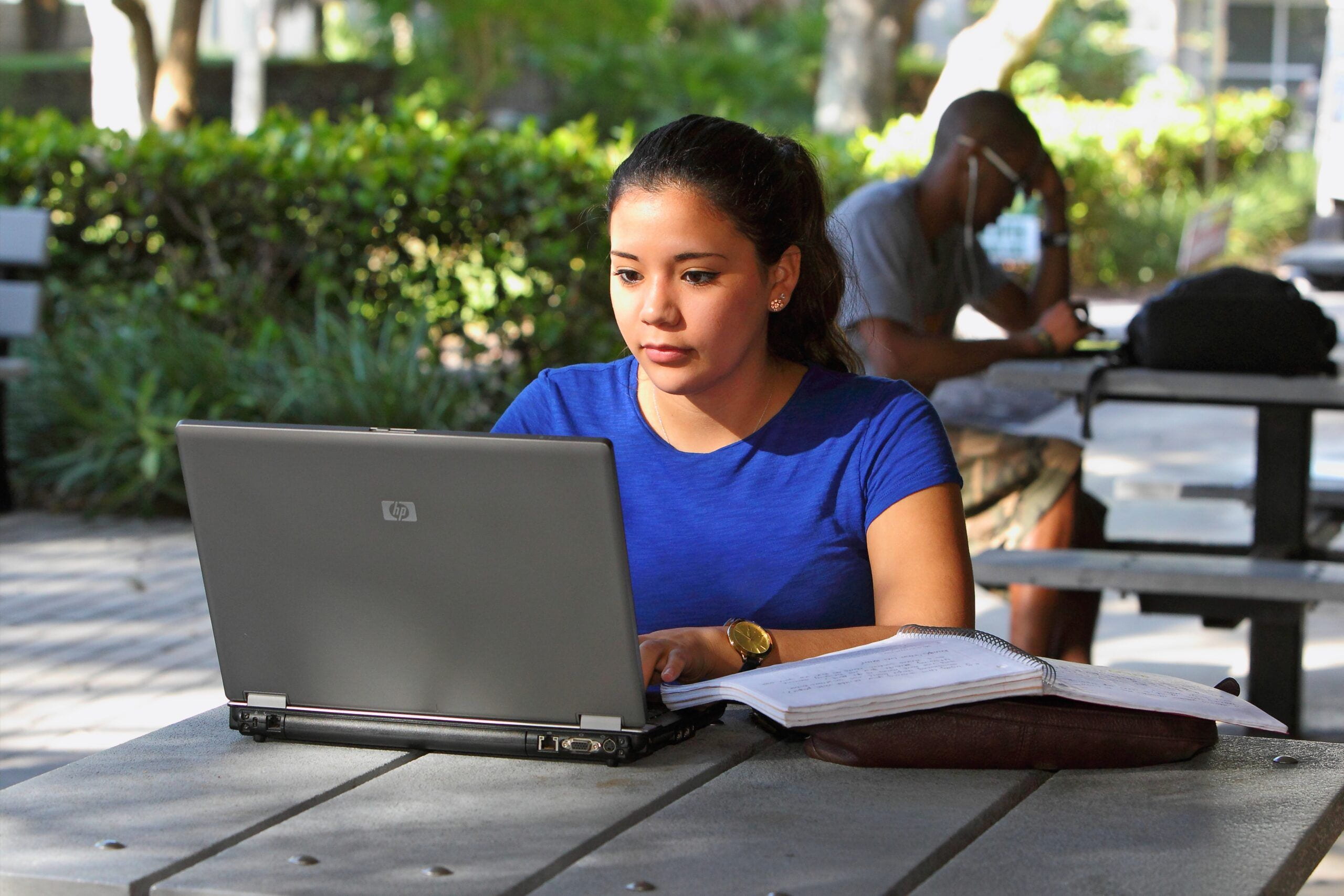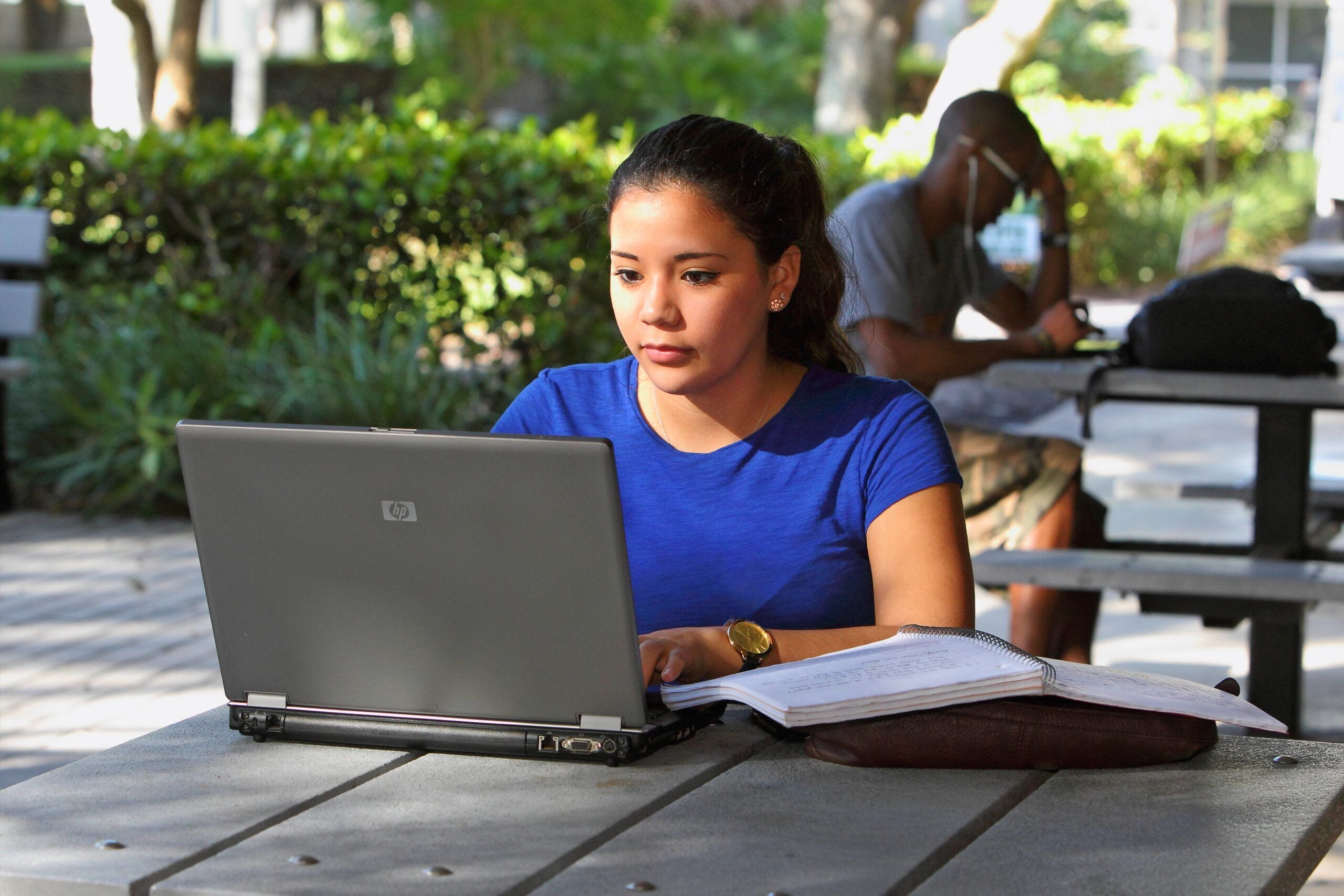Atticus Leeds – Layout Editor
Since most classes went online out of necessity in 2020 due to Covid, there has been a massive and unexpected test of remote learning technology. But now, with vaccines commonly available, it ought to be asked: What will this new tech landscape mean for the nature of college education post-Covid, and how will that landscape be decided?
After speaking to graphic design associate professor and program manager Adriana Portal and journalism student Kaela Perkins, it seems that students and teachers alike find remote learning a convenient and generally positive experience, but there have been some challenges.
Professor Portal mentioned that remote learning facilitates student communication less, and it is necessary for her to find ways to keep the students engaged with each other, and Perkins said there is less “student-teacher connection,” and it is easier to become distracted from class.
With these details in mind, Jeffrey Nasse, College Provost and Senior Vice President for Academic Affairs, shared the perspective of a Broward College administrator: what the administration has gathered of people’s opinions on remote learning and what plans they have for the future.
According to Nasse, he and the administration have been in ongoing discussions with faculty ever since Spring of 2020 when Covid first broke out about how to move forward with learning modalities, taking into account their strengths and weaknesses.
They are consulting with faculty all the time and maintain constant communication, meeting every Tuesday to discuss the present situation.
Likewise, the administration has been communicating with the student body through student services surveying. Nasse said that he puts an emphasis on “meeting students where they are.”
Nasse goes on to explain at present and for the foreseeable future, Broward College will be offering the following five learning modalities to students: 1. online asynchronous, classes without meeting over voice or video, which BC has always offered, 2. on-campus, the classic college experience in a physical classroom, 3. blended, where some class days meet on campus while others are online, 4. online synchronous, where classes take place over Zoom, and 5. the new hi-flex, or ‘simulcast’ learning, wherein some students will be in person while others will be able to watch it streamed live from a remote location, which BC will be piloting in the spring.
Nasse noted that flexibility in modalities is potentially useful because different types of classes benefit differently.
As Professor Portal pointed out, some classes are complemented by being online because most of the work takes place on a computer; it is easier to focus and organize, and one’s resources are all at hand.
She mentioned furthermore that, when a class is online it “opens geographical barriers” to students seeking education. Likewise, according to Perkins, classes which heavily involve face-to-face communication and making contacts are complemented instead by being held in person.
When asked about what his own experience was as an academic administrator during Covid, Nasse expressed that it was difficult because it was “completely unplanned for” and “no one’s done this before” but, when doing something completely new, he said that Broward College will always do what’s best for the students.
Nasse also said, “with more and more evolving options, and technology changing, education will continue to evolve”.

leeda7@mail.broward.edu
